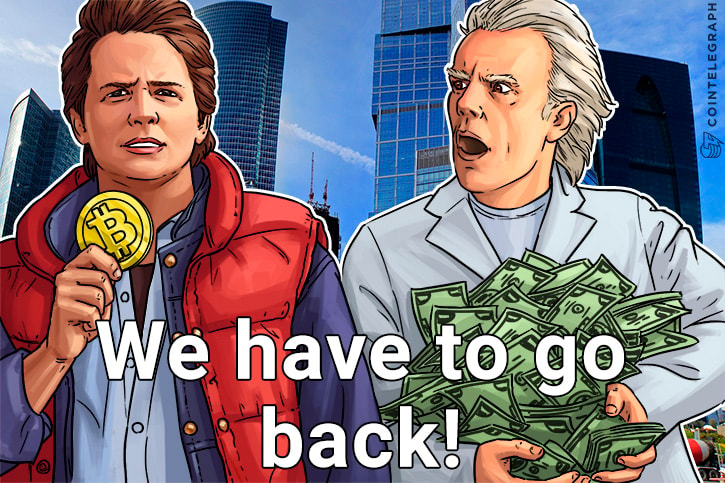Earlier this week, CNBC, one of the few mainstream media outlets that have been offering extensive coverage on Bitcoin over the past few months, revealed that $100 worth of Bitcoin purchased in 2010 is now worth $75 mln.
In a relatively short span of seven years, Bitcoin price surged from around $0.003 to a staggering $2,389. That is a 796,000x return as an investment. In fact, today, on May 24, Bitcoin price hit a new all-time high at $2,392 and is continuously demonstrating a rising demand from both casual and institutional investors.
Bitcoin price hits new all-time high again for the second time this week at $2,392. Important to note, China made a strong comeback. pic.twitter.com/S8mceNDTqM
— Joseph Young (@iamjosephyoung) May 24, 2017
The majority of mainstream media analysts suggest that Bitcoin price is completely speculative in the sense that investors are purchasing Bitcoin solely expecting a massive return in value. However, as Cointelegraph previously reported, prominent investors including GoldSilver.com founder Mike Maloney are encouraging investors to hold Bitcoin as a mandatory asset to hedge against inevitable global economic uncertainty and financial instability, not just as a large return investment.
Bitcoin as digital currency and digital cash
On the contrary, the Japanese Bitcoin industry has been perceiving and considering Bitcoin as digital currency and digital cash. Some of the country’s largest conglomerates have launched fiat-to-Bitcoin exchanges to provide high liquidity for the rapidly expanding number of cryptocurrency investors in the region.
Also, some of Japan’s most influential companies including Bic Camera, Peach Aviation and Recruit Holdings, the company behind the country’s most widely utilized Point of Sale (PoS) systems are offering Bitcoin as an official payment option to their clients
Hence, the categorization of Bitcoin as a “risky investment” as noted by several mainstream media outlets including the Washington Post is not a fair evaluation of the role Bitcoin plays in the global economy. Bitcoin is the alternative financial network which is directly competing with the banking and financial industries. It is one of the only technologies that could render banking and financial industries redundant.
In an analysis, a Washington Post analyst wrote, “Most investors agree that, although the currency’s meteoric rise is very attractive, it’s also an extremely volatile and risky investment.” However, some of the world’s largest investment firms including Fidelity Investments, an investment firm which brings in more than $15.9 bln in annual revenue and manages $2.13 tln worth of assets, disagrees with the assessment and considers Bitcoin as a safe haven asset that is arguably more reliable than gold.
"I love this stuff – Bitcoin, Ethereum, Blockchain technology – and what the future holds. But I am still a believer – and it's no accident that I'm one of the few standing before you today from a large financial services firm that hasn't given up on digital currencies,” said Fidelity Investments CEO Abigail Johnson.
“Safe haven” asset
Most importantly, Cointelegraph previously revealed that Bitcoin outpaced and outperformed gold as a safe haven asset. A $10,000 Bitcoin investment in 2010 is now worth $200 mln while an identical investment in gold led to a negative return of $9,900.
Cointelegraph’s analysis further argued whether gold can be considered as a safe haven asset, if it is not able to hold its value or experience an increase in price amid economic uncertainty since a safe haven asset by definition is an investment that retains or increases its value amidst market turbulence and economic certainty, over time.


